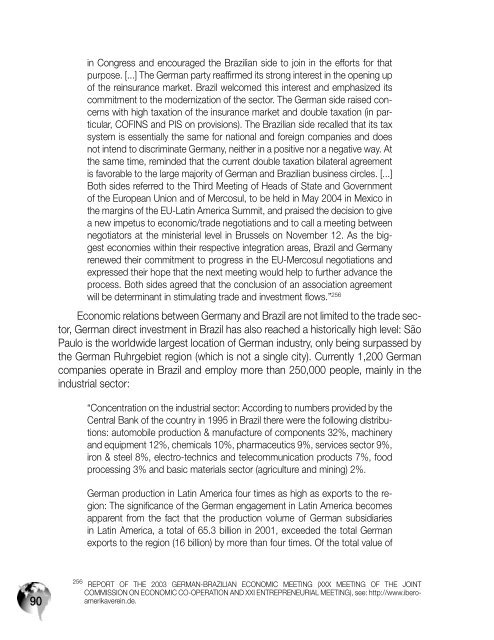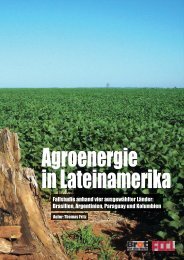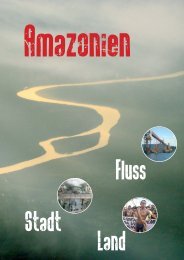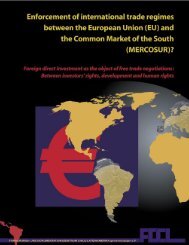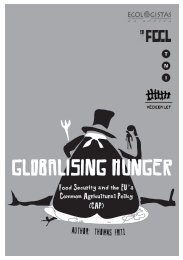Download - FDCL
Download - FDCL
Download - FDCL
You also want an ePaper? Increase the reach of your titles
YUMPU automatically turns print PDFs into web optimized ePapers that Google loves.
90<br />
in Congress and encouraged the Brazilian side to join in the efforts for that<br />
purpose. [...] The German party reaffirmed its strong interest in the opening up<br />
of the reinsurance market. Brazil welcomed this interest and emphasized its<br />
commitment to the modernization of the sector. The German side raised concerns<br />
with high taxation of the insurance market and double taxation (in particular,<br />
COFINS and PIS on provisions). The Brazilian side recalled that its tax<br />
system is essentially the same for national and foreign companies and does<br />
not intend to discriminate Germany, neither in a positive nor a negative way. At<br />
the same time, reminded that the current double taxation bilateral agreement<br />
is favorable to the large majority of German and Brazilian business circles. [...]<br />
Both sides referred to the Third Meeting of Heads of State and Government<br />
of the European Union and of Mercosul, to be held in May 2004 in Mexico in<br />
the margins of the EU-Latin America Summit, and praised the decision to give<br />
a new impetus to economic/trade negotiations and to call a meeting between<br />
negotiators at the ministerial level in Brussels on November 12. As the biggest<br />
economies within their respective integration areas, Brazil and Germany<br />
renewed their commitment to progress in the EU-Mercosul negotiations and<br />
expressed their hope that the next meeting would help to further advance the<br />
process. Both sides agreed that the conclusion of an association agreement<br />
will be determinant in stimulating trade and investment flows.” 256<br />
Economic relations between Germany and Brazil are not limited to the trade sector,<br />
German direct investment in Brazil has also reached a historically high level: São<br />
Paulo is the worldwide largest location of German industry, only being surpassed by<br />
the German Ruhrgebiet region (which is not a single city). Currently 1,200 German<br />
companies operate in Brazil and employ more than 250,000 people, mainly in the<br />
industrial sector:<br />
“Concentration on the industrial sector: According to numbers provided by the<br />
Central Bank of the country in 1995 in Brazil there were the following distributions:<br />
automobile production & manufacture of components 32%, machinery<br />
and equipment 12%, chemicals 10%, pharmaceutics 9%, services sector 9%,<br />
iron & steel 8%, electro-technics and telecommunication products 7%, food<br />
processing 3% and basic materials sector (agriculture and mining) 2%.<br />
German production in Latin America four times as high as exports to the region:<br />
The significance of the German engagement in Latin America becomes<br />
apparent from the fact that the production volume of German subsidiaries<br />
in Latin America, a total of 65.3 billion in 2001, exceeded the total German<br />
exports to the region (16 billion) by more than four times. Of the total value of<br />
256 REPORT OF THE 2003 GERMAN-BRAZILIAN ECONOMIC MEETING (XXX MEETING OF THE JOINT<br />
COMMISSION ON ECONOMIC CO-OPERATION AND XXI ENTREPRENEURIAL MEETING), see: http://www.iberoamerikaverein.de.


